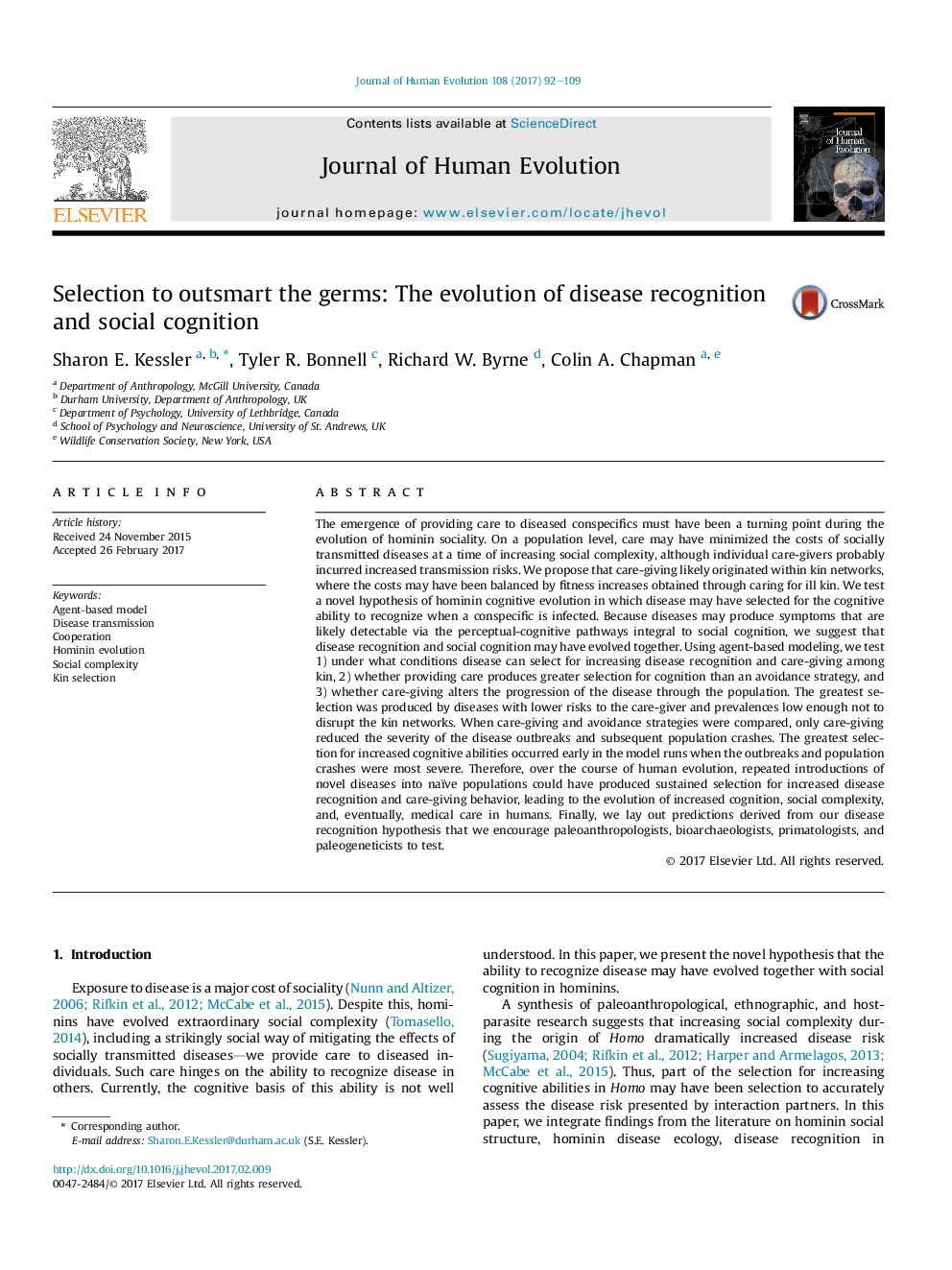ترجمه فارسی عنوان مقاله
انتخاب میکروب ها را از بین ببرد: تکامل شناخت بیماری و شناخت اجتماعی
عنوان انگلیسی
Selection to outsmart the germs: The evolution of disease recognition and social cognition
| کد مقاله | سال انتشار | تعداد صفحات مقاله انگلیسی |
|---|---|---|
| 127194 | 2017 | 18 صفحه PDF |
منبع

Publisher : Elsevier - Science Direct (الزویر - ساینس دایرکت)
Journal : Journal of Human Evolution, Volume 108, July 2017, Pages 92-109
ترجمه کلمات کلیدی
مدل مبتنی بر عامل، انتقال بیماری، همکاری، تکامل هومیین، پیچیدگی اجتماعی، انتخاب خویشاوندی،
کلمات کلیدی انگلیسی
Agent-based model; Disease transmission; Cooperation; Hominin evolution; Social complexity; Kin selection;

